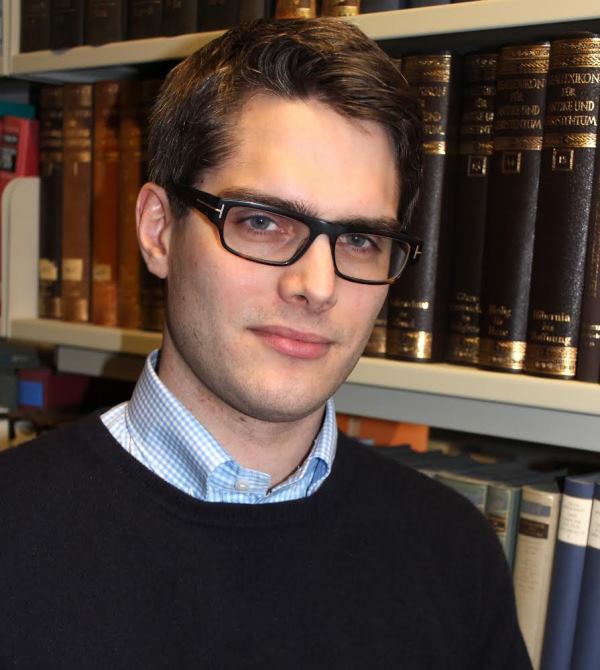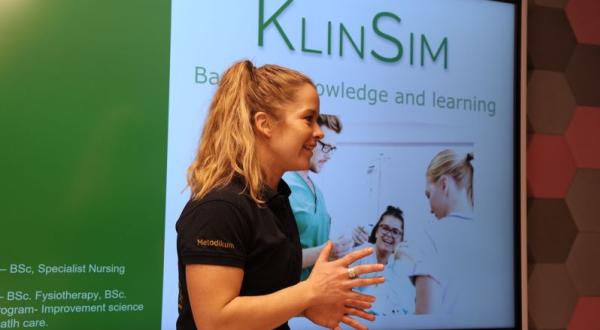With inter-university cooperation in medical humanities on the horizon
 A few days ahead of the Nobel award season when the prize laureates are being announced one by one, Rīga Stradiņš University (RSU) hosted two guest lectures and 10 workshops for students on winners and losers in Nobel Prize history by Dr Nils Hansson (pictured), Assistant Professor at the Department for History, Theory and Ethics of Medicine at the Heinrich Heine University in Düsseldorf. How (not) to Win the Nobel Prize is a catchy title, and the lectures gathered local and international medical students, RSU staff, as well as representatives of national media. However, the results of this visit may turn out to be more far-reaching than expected. In a short post-lecture interview RSU Professor Juris Salaks discusses potential cooperation between the two universities with Dr Hansson.
A few days ahead of the Nobel award season when the prize laureates are being announced one by one, Rīga Stradiņš University (RSU) hosted two guest lectures and 10 workshops for students on winners and losers in Nobel Prize history by Dr Nils Hansson (pictured), Assistant Professor at the Department for History, Theory and Ethics of Medicine at the Heinrich Heine University in Düsseldorf. How (not) to Win the Nobel Prize is a catchy title, and the lectures gathered local and international medical students, RSU staff, as well as representatives of national media. However, the results of this visit may turn out to be more far-reaching than expected. In a short post-lecture interview RSU Professor Juris Salaks discusses potential cooperation between the two universities with Dr Hansson.
What have been your impressions of Riga so far?
It has been a week full of impressions. For example, the Pauls Stradiņš Museum of History of Medicine is the largest of its kind that I have attended so far. Unfortunately I have not had the chance to take a proper look at the collection of this museum, but from the brief look that I had it is clear that the period of Imperial Russia and Soviet medicine is very interesting and well-documented. It is also interesting to see a museum that is constructed from a physicians’ rather than patients’ point of view.
However, the first thing that struck me is the international perspective of both the city and the university. At RSU not only is the number of international students impressive but also the variety of countries represented. In my workshop I had six or seven different nationalities present.
If invited to work in Riga, what research opportunities would you explore?
I would focus on Latvian-German relations in medicine over the past 200 years. These would be my prime interests. I saw great potential at RSU and the museum for our joint PhD students’ research projects. When I try to do research, first I need to find different historical documents (sources) in archives, libraries, private collections and that usually takes up half of the time in the project. In the museum collection resources that are essential for a researcher are concentrated in one place, easy to access, and in addition you might have the opinions of experts. Also, as we discussed before, it will be nice to develop a joint study programme - Medical Humanities.
Being student-oriented is at the core of RSU’s values. If we were to develop cooperation between RSU and Heinrich Heine University, what is in it for our students?
I see vast opportunities for cooperation between our universities in fields such as medical history and humanities and medical ethics. Cooperation, as I see it, could be held as workshops over a number of days – putting students from Germany and Latvia together in small seminar groups with a joint task to be tackled. Both universities have strong expertise in the history of medicine, medical humanities and medical ethics. With a new head of the Department of History, Theory and Ethics of Medicine, the Heinrich Heine University is open for new cooperation options more than other such centres in Germany. We can reach out in many directions at the moment.
Related news
 METC and Swedish KlinSim Association: new opportunities for improving the quality of medical educationInternational Cooperation
METC and Swedish KlinSim Association: new opportunities for improving the quality of medical educationInternational Cooperation


